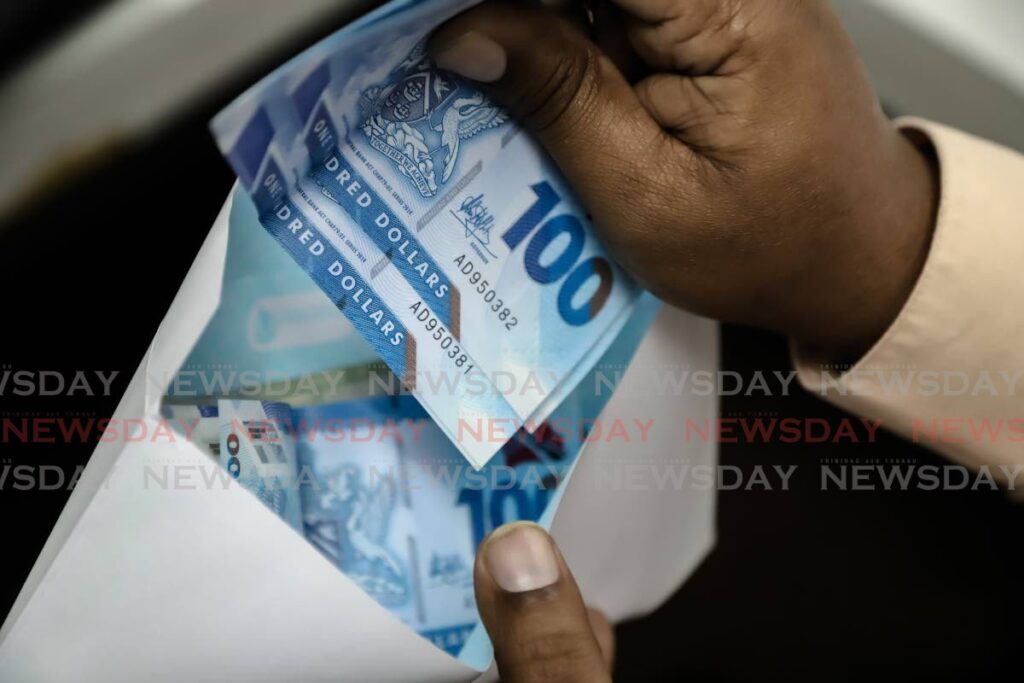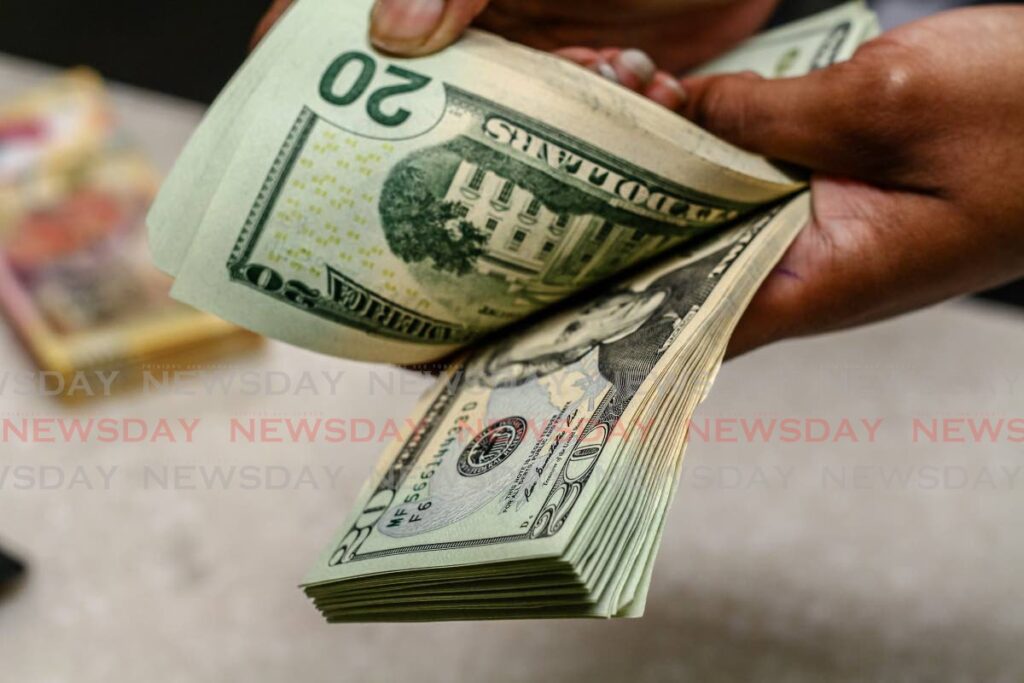IMF suggests devaluation but Government says no reason to do so

A RECENT IMF report suggested the TT dollar is overvalued by 20 per cent, but Minister in the Ministry of Finance Brian Manning on Tuesday told Newsday the Government would not expose citizens to the "deleterious effects" of any devaluation.
Former trade minister Mariano Browne supported the report and suggested any current overvaluation would now have items being imported more cheaply than the country could afford and provide potential undeserved windfalls for currency speculators.
The report this month, after an Article IV consultation, was generally optimistic about TT's economy. It said covid19, low energy production and price shocks had hit TT's economy in 2020, which had shrunk by 7.4 per cent that year and probably a further one per cent in 2021.
Lower energy earnings plus outlays against covid19 had pushed the fiscal deficit to 11.6 per cent in 2020 and 10.1 per cent in 2021. Government debt-to-GDP worsened from 45.4 per cent in 2019 to 65.9 per cent in 2021.
"A strong recovery is projected for 2022," said the report, amid risks. Growth is projected at 5.5 per cent, supported by a recovery in oil and gas production.
The report predicted an improved fiscal deficit of 7.5 per cent, amid a Government debt-to-GDP peaking at 68.8 per cent, but then declining.
However, the report several times commented on the TT dollar exchange rate.
"Directors stressed the importance of modernising foreign-exchange and money-market infrastructure to reduce inefficiencies and imbalances and to support the exchange rate arrangement."
The IMF suggested the TT dollar was overvalued on the basis of imports exceeding its exports.
"The current account balance further deteriorated in 2020 to 0.1 per cent of GDP, reflecting a sharp contraction in energy exports, which exceeded a decline in imports.
"The current account gap is estimated at minus 3.4 per cent, suggesting a currency overvaluation of 11.6 per cent...."
The IMF hinted at floating the TT dollar, saying, "Looking to the future, exchange rate flexibility, if properly utilised, would reduce the need for fiscal tightening to achieve external balance and create room for countercyclical monetary policy."
It also urged the Exim Bank to replace its hybrid exchange-rate system and special-purpose windows by "modernising FX and money market infrastructures."
The IMF expected new energy projects to improve the foreign-exchange supply in the medium term.
The report raised the exchange-rate issue by listing its key recommendations in its 2018 Article IV consultation.
This included, "Recommendations: Allow exchange rate to fluctuate with market forces" and "Status: No progress. The authorities prefer to maintain the status quo on the exchange rate regime."

The report, in an annex, said TT's real effective exchange rate (REER) had shrunk by 7.2 per cent from March 2020 to June 2021, but remained overvalued.
"This is consistent with the observed tightness in the domestic foreign exchange market and the one-sided interventions by the Central Bank, which have kept the nominal exchange rate vis-à-vis the US dollar stable." The report suggested TT has a current account gap of 11.6 per cent and an overvaluation in its real effective exchange rate of 20.4 per cent.
Browne said if TT's currency was overvalued it meant people were importing too much relative to TT's income and were paying too little to buy US dollars.
"You are spending more foreign exchange than you should be."
Asked if he agreed with the IMF that the TT dollar was overvalued, he concurred, saying, "The facts speak for themselves."
Manning, however, said the Prime Minister had made it clear devaluation was a last resort for TT.
"We have been doing everything possible to protect the people of TT from devaluation. Everyone in TT can really play their part by trying to consume more local products, especially food, to reduce the demand for foreign exchange. That is a key way to stave off a devaluation.
"The Government has decided we will not go the route of a devaluation because we want to protect the people of TT from its deleterious effects."
He said TT imports a lot.
"If you have a devaluation, you instantly increase the price of many imported products, some of them essential, such as basic food items and also medicine. That is what we want to avoid.
"That is why we have been largely raising prices of the luxury items, items that are not essential items, to really reduce the demand for foreign exchange."
Manning said the Government had achieved this by adding VAT to luxury food items, while also removing it from basic food items so they would be affordable for the average citizen.
"When it comes to devaluation, the Government has been doing everything possible to really stave off using that strategy. Exchange rates are built on demand and supply and interest rates. The Central Bank is keeping the interest rate low while the Government has been working to reduce the demand for foreign currency. That's how you keep the exchange rate in line.
"Devaluation is not something we'd deal with lightly because we understand the negative impact it will have on our economy, especially on our most vulnerable citizens. We have been working diligently to ensure we maintain a low cost of living in TT."
Finance Minister Colm Imbert reaffirmed Government's position in the Senate on Tuesday in a reply to a question from Opposition Senator Wade Mark, and again in a tweet in response to a news report on the issue.
"We intend to maintain the status quo with respect to our exchange-rate regime. We do not intend to devalue the currency. There is absolutely no reason to do so," Imbert told the Senate.
And in his tweet, referring to IMF policies implemented by the NAR administration in the 1980s, Imbert, noted a TV6 news report of a former minister suggesting that the Central Bank did not need government's sanction to devalue the dollar, saying by law only the Finance Ministry can make such a decision.
"...And we are not going to do that," he said.


Comments
"IMF suggests devaluation but Government says no reason to do so"